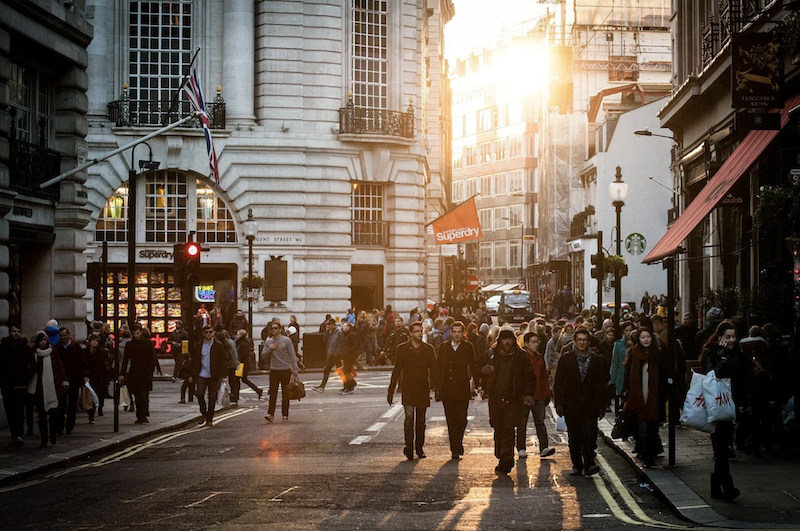The “15-minute city” where residents live within a short walk or bike ride of all their daily needs has gained favor during the COVID-19 pandemic, with some cities banning or reducing cars in designated areas.
This model, the norm in central areas of European cities that were largely settled before the advent of the automobile, faces difficulty in translation to North America. Cities on this side of the Atlantic were laid out with vehicular traffic in mind, creating widely settled areas with fewer tight-knit neighborhoods.
What’s more, economically disadvantaged areas of cities often lack amenities such as grocery stores, pharmacies, and other necessities. Without a concerted effort and significant investment, these urban areas cannot be easily transformed into the 15-minute city model.
Adding bike lanes and small parks will not reverse segregation that had been embedded into city planning for decades. While the 15-minute city may not be realistic for some North American cities, if these communities can transform from a 45-minute city to a 20-minute city, that would be a worthwhile achievement, some planners say.
Related Stories
| Oct 25, 2012
Nashville providing incentives for green roofs
The city of Nashville, Tenn., is promoting the installation of green roofs through a measure providing a $10 reduction in a property's sewer fees for every square foot of vegetative roof.
| Oct 25, 2012
Net Zero buildings will use operating systems like computers to save energy
As buildings become more efficient and begin to use distributed electricity generation, they will need to become “smarter,” using operating systems much as a computer does.
| Oct 18, 2012
Princeton, N.J. residents upset over proposal to exempt colleges from land use laws
Princeton, N.J. residents criticized proposed legislation that would exempt private colleges and universities from following local land use laws for construction projects.
| Oct 18, 2012
Utah contracting firm challenges state immigration law
Universal Contracting LLC of American Fork, Utah, has filed suit challenging the constitutionality of Utah’s 2011 immigration law.
| Oct 18, 2012
More than 65,000 construction, design jobs may be cut if sequestration takes place
About $2 billion worth of construction and design projects would be eliminated if scheduled federal budget cuts, referred to as sequestration, take effect on Jan. 2, 2013.
| Oct 18, 2012
OSHA investigating parking garage collapse that kills four at Doral, Fla. college
OSHA is investigating the collapse of a five-story concrete parking garage under construction at Miami Dade College West Campus in Doral, Fla. that killed four workers and injured several others.
| Oct 18, 2012
EPA commercial building lead paint rule pushed back to 2015
The U.S. Environmental Protection Agency's inclusion of commercial buildings in a residential lead paint rule is being delayed until 2015.
| Oct 18, 2012
Chicago pushing green roofs to reduce heat island effect
The city of Chicago has mandated that all new buildings that require any public funds must be LEED certified, usually with a green roof.















